Dick Wagner interview
Dick Wagner, renowned Detroit area guitarist, songwriter and band leader kindly took time from his hectic schedule to share his musical saga with readers of It’s Psychedelic Baby Magazine. Many thanks to Dick for doing the interview immediately following a visit to the dentist on a 100 plus degree Arizona afternoon.
How are you doing today Dick?
Okay, how are you doing?
I think probably better than you since you just left the dentist’s office.
Yeah, it’s about 112 degrees today. Really hot.
You were born in Iowa, but moved to Michigan at a very young age. What was the reason for the move?
It was a family move. My father got a position in Michigan so we moved as a family.
How old were you when you began playing guitar and what kind of guitar did you start out with?
I was 16 or 16 1/2 when I began playing and it was a Harmony guitar. A Harmony acoustic guitar.
Wow, that’s really hard to imagine, Dick Wagner playing acoustic guitar. How long was it before you were playing electric guitar and what type of guitar was it?
6 months. It was a Harmony guitar also, a very nice guitar, soon followed by a Gibson 345. I sold that Gibson about 20 years ago after having it for 30 years. Wish I still had it.
Who were your influences?
The Beatles, Roy Orbison, Jerry Lee Lewis, Elvis, all the early rockers. I’m an old guy you know. I’ve been around the block several times.
What was the first song you ever wrote?
It was called “Lonely and Crying For You.”
Do you still remember how to play it?
Sort of. I could probably remember it if I tried. I remember the chorus but not the verse. That was about 50 years ago. For a songwriter its kinda like asking someone what they had for breakfast 50 years ago.
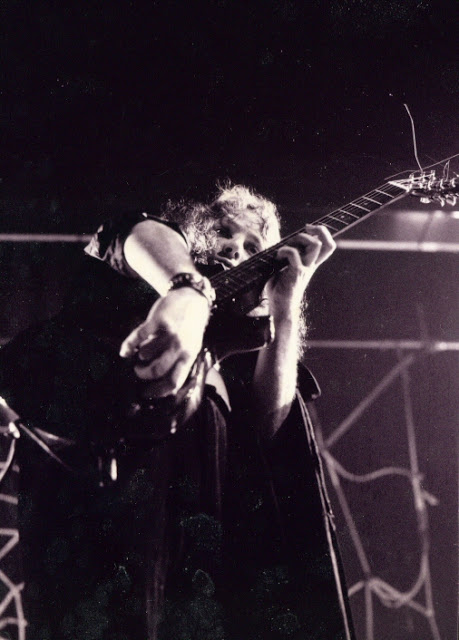
Did you record the song?
No, never did record it.
What was the first band you were in?
The name of the band was The Invictas. It was composed of four seventeen year olds just learning to play guitar so you can kind of imagine what it sounded like.
Four guitars, it must’ve gotten kinda loud?
Yeah, a little loud and a little loose probably, you know. The band evolved and after six or eight months we got a bass player and a drummer.
How long did The Invictas stay together?
We were together about six or eight months and then added a drummer and bass player. All together we were probably together a couple of years. The band evolved.
Eventually you ended up in The Bossmen with yourself on guitar, Warren Keith on pian, Lanny Roenicke on bass and Pete Woodman on drums. What was the first song you guys recorded?
It was called “Take A Look My Friend.”
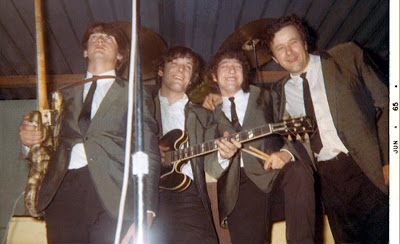
Did it get any radio air play?
Yeah, in mid Michigan it got a lot of air play.
What label was that on?
The Soft label out of Nashville.
With the Bossmen you cut about a half dozen singles.
Yeah, six singles.
And you did all the songwriting for The Bossmen?
Pretty much. Warren Keith the piano player wrote “Its A Shame” and “Thanks To You” was written by our bass player. I wrote all the rest of them.
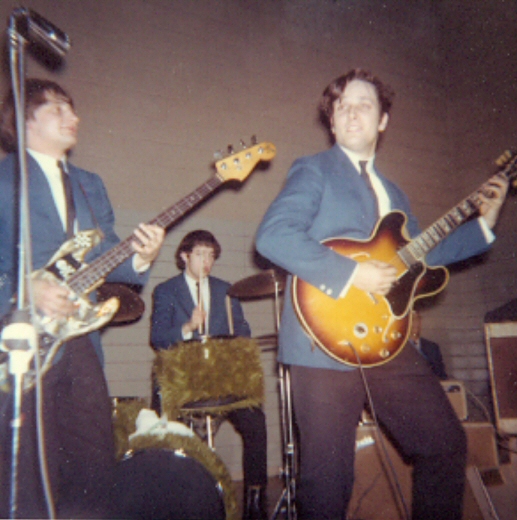
How much touring did you do with The Bossmen?
Quite a bit. We were very popular. We were young but very popular so we were always on the road touring.
What sort of venues did you play?
High schools and a variety of small places.
After The Bossmen was The Frost your next band?
The Frost was the next band, yeah.
Tell me how The Frost came to be on the Vanguard label?
They had an agent in Detroit following us every week for 6 months until we signed with them.
How did things work out on the Vanguard label which was owned by Lawrence Welk?
They didn’t much know what to do with us. Vanguard was a folk label. Joan Baez, Buffy Saint-Marie and the like. When it came to promotion they weren’t quite ready for an act like The Frost. We rocked and the label just wasn’t designed to promote that sort of music so we were left to our own devices in a lot of situations.
What was your first release with The Frost?
The LP was called “Frost Music.” The single from it “Mystery Man” was a pretty big hit.
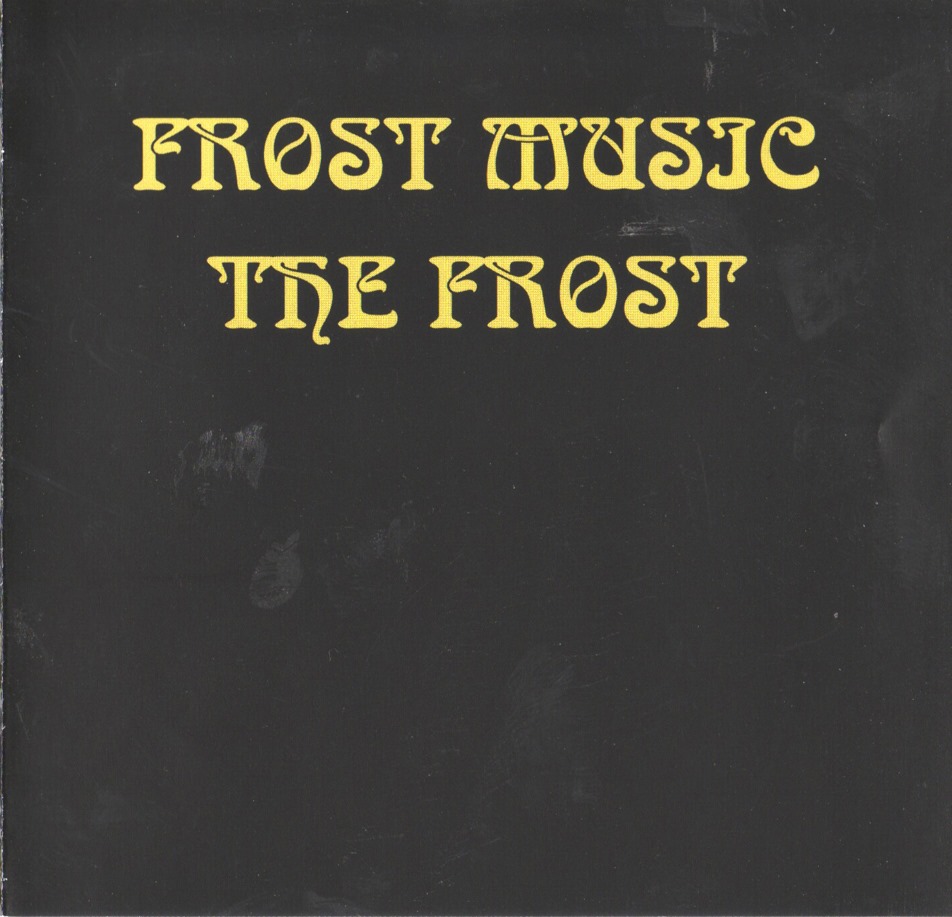
Any idea how many copies of “Frost Music” were sold?
We sold 50,000 albums the first two weeks. All in all it sold about 100,000 units. It was a definite hit.
What venues were you playing when The Frost came around?
Bigger venues like The Grande Ballroom in Detroit, occasionally places like Olympia or bigger arenas. A variety, but bigger than with The Bossmen.
The second album was recorded live. How did it sell?
It was recorded over two nights at The Grande Ballroom. It sold about 100,000 units like the first album.
What was the single from “Rock and Roll Music?”
It was the title track and it was an anthem. It was a big hit.
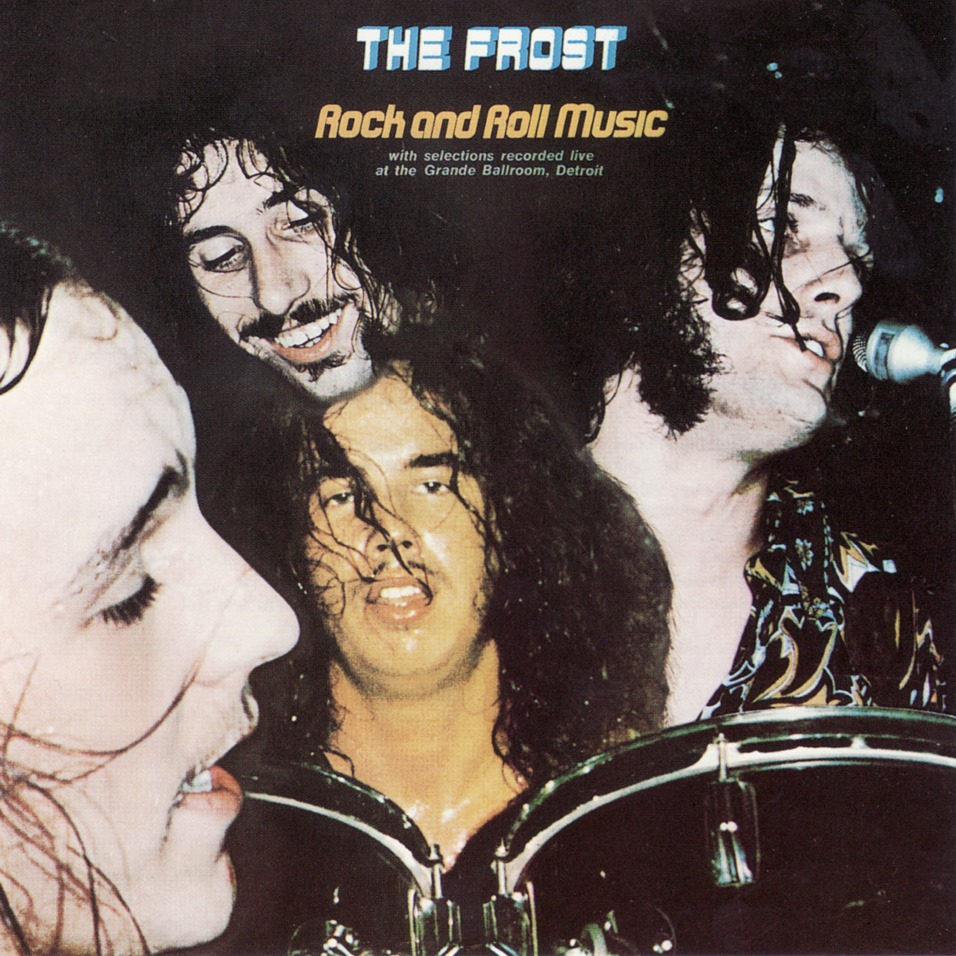
How much time did it take The Frost to cut an album in the studio?
We cut the first album in about a week. The second album was live, over two nights. The third album “Through The Eyes Of Love” took a little longer. It took about two weeks to record.
The personnel of The Frost stayed the same all the way through. Why was it that The Frost disbanded?
Everyone had their own agendas. Keeping a band together is very hard. You’ve got to have the same purpose. All the guys in the band gotta have the same dream. If they don’t it doesn’t work. Its very difficult keeping bands together. You try, you do your best, but sometimes it doesn’t work. We did pretty good. The Frost was together like three years.
It sounds like the band did very well. Was everybody in the band on the same page?
Not really. Some of them wanted fishing time, you know. I was all about the music. That created kind of a problem but we were together quite a while.
After The Frost broke up, tell me how your next band came about.
I moved to New York and started Ursa Major with Billy Joel and a drummer Rick Mangone. Billy left before we recorded anything and I got a bass player from The Amboy Dukes. We toured with Alice Cooper and with Jeff Beck and we toured a bit on our own. We recorded one album and then that band broke up. The same thing. Trying to keep a band together is nearly impossible.
Ursa Major recorded one LP, which today is recognized as a hard rock classic.
It is.
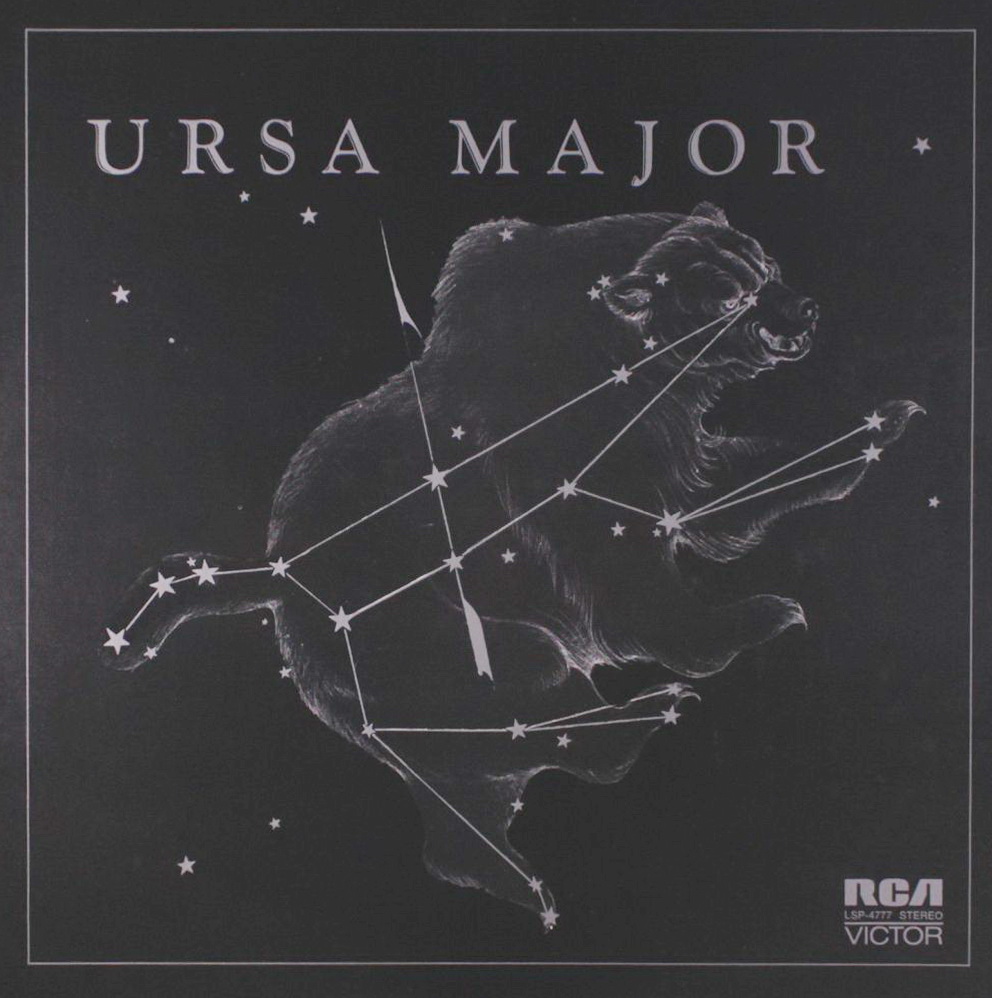
How long did you have to record that album and how did the sessions go?
Not too long. A couple of weeks to write the songs and a couple of weeks to record it.
So you were the songwriter for Ursa Major?
I wrote all the songs.
What a shame that Ursa Major didn’t last.
Yeah, that’s the way it is. Bands have a lot of potential, and then something happens and they break up. Maybe its me, I don’t know. Maybe they don’t like me. Very possible. (Laughter)
By this point were you a Gibson man?
Yeah, I played the 345 all the time.
After Ursa Major I know you did some session work. Could you tell us some of the people you played sessions for and some of the studios you played in.
You know, its hard for me to remember everything I did in the early 1970s. I played at The Record Plant and Jimi Hendrix’s Electric Lady Studios. My complete discography is available on my website. There’s just too much for me to remember.
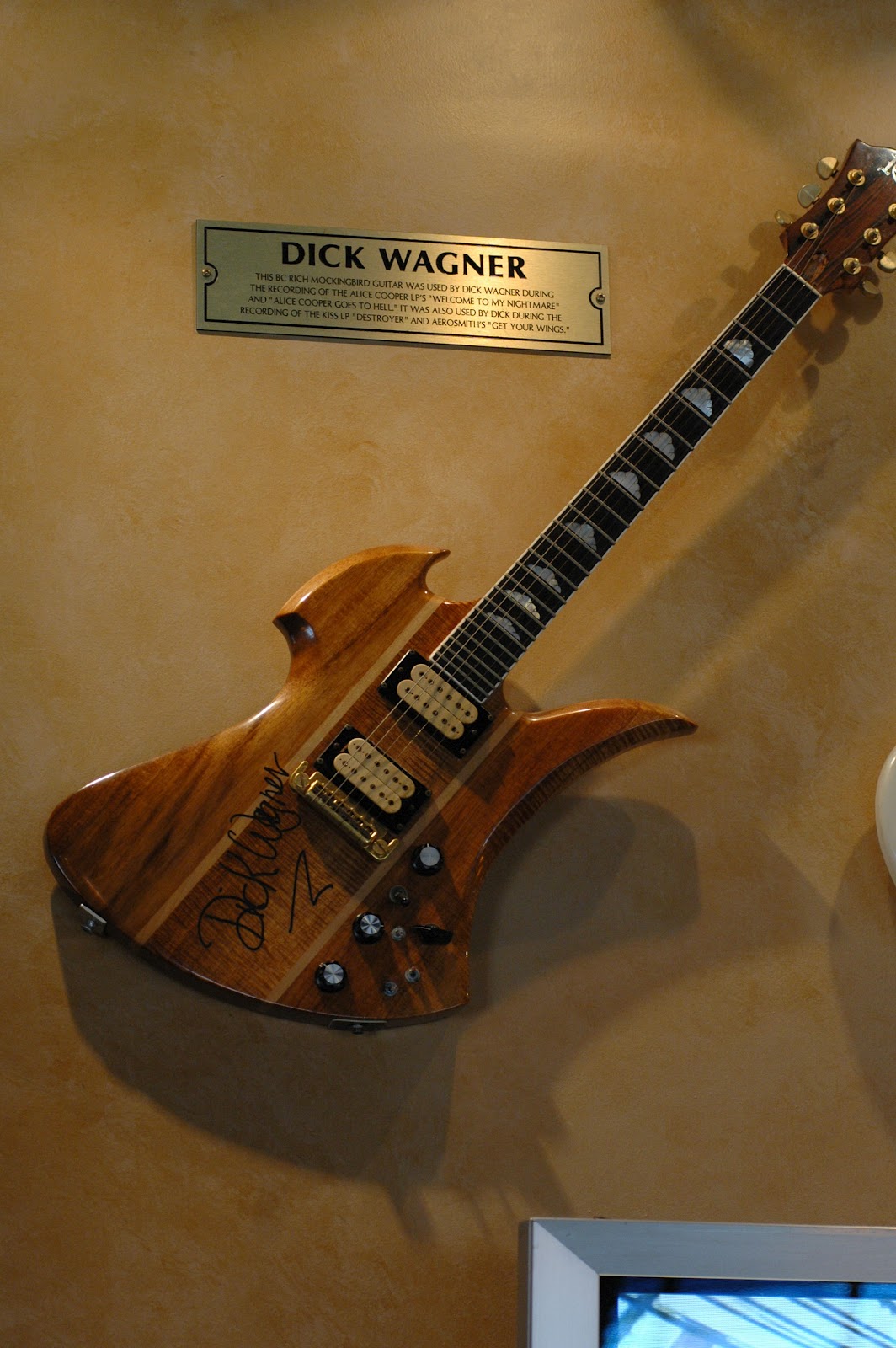
Are there any sessions that really stick out in your mind?
We did the Lou Reed live album “Rock ‘n’ Roll Animal” and that’s a classic. Then I did “Welcome To My Nightmare” with Alice Cooper. I spent a lot of years with Alice Cooper, like ten years or so.
The Lou Reed live album. It sounded like you and Steve Hunter had played together forever. Did it seem that way to you?
Oh yeah. Playing with Steve was magic. It really was. And I’d like to do it again someday.
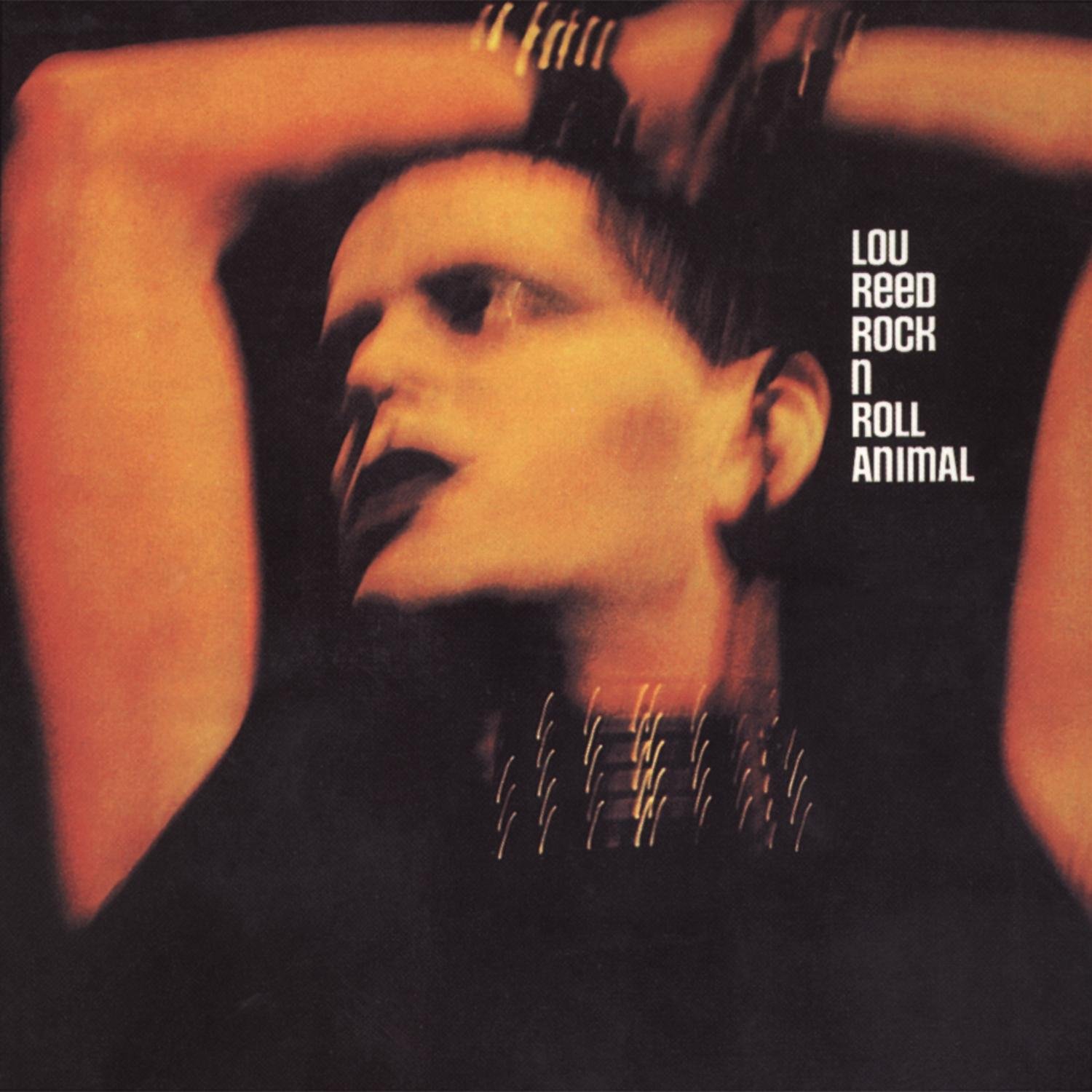
How many sessions did you and Steve do together?
There were a few. But all of them were special. It was a great guitar partnership too.
You had played on Lou Reed’s album “Berlin” hadn’t you?
That’s correct. I didn’t play that much on the album. Steve did a lot more than I did. Then we played on an Aerosmith album and I did the Kiss album.
Following the Lou Reed albums, you joined Alice Cooper. How did that happen?
Lou Reed fired me. He said he didn’t like my sound anymore. So when I left Lou Reed I brought the same band to Alice Cooper.
Can you tell our readers who the other members of that band were?
Steve Hunter and myself were on guitar, Prakash John on bass, Penti Glan on drums, and Ray Colcord on keyboards. Steve and I were Americans, the others came from the Canadian band Mandala. Together we were definitely a great band.
What sort of relationship did you have with Alice Cooper?
We were cowriters and I was kinda band leader. Alice was good to us. Very good to us. (Note: 7 of 9 of Alice’s top 10 hits were cowritten with Dick).
How long did you play with Alice?
Going on ten years, nine years or so. A long time. Long time.
Probably the best known song you cowrote with Alice was “Only Women Bleed.” How did you guys come up with that song?
The music I had written while in The Frost. But the lyrics never were good enough so we never recorded it. Then Alice and I sat down and wrote new lyrics and it came out “Only Women Bleed.” That was his idea, that title.
Any idea how many copies that single sold?
Close to a million.
That was in 1976 as I recall, so we’re talking about 35 or 36 years ago.
A long time ago. Yeah. I still get royalties. Its also been recorded by another twenty five or twenty six artists. Its a truly classic song. Its recorded by lots of different people every year.
So it sounds like a song that continues to pay not only tribute to you and Alice as great songwriters, but also in the form of royalty checks.
Oh yeah, its fun, you go to the mailbox open it up and get your royalty checks every couple of months. Its good. That song has kept me living for many years.
One thing I’m sure our readers want to know, how was it to tour with Alice Cooper?
It was always a party. It was great. I miss it. I’d like to do it again.
Are you still in contact with Alice?
Oh yeah. We’re friends. I talked to him not too long ago.
So is there any chance of you guys reuniting in the future?
Um, I would say yes. There is a chance, yep. I think we probably will.
Judging by the track record I don’t see how it could be anything but a win-win situation.
No I agree with you totally. I agree with you.
What was the reason for leaving Alice’s band?
I was gonna go solo. I made a solo album. I was gonna give that a shot. I didnt really get into it the way I should have but I was always doing sessions and writing songs for other people so I was busy all the time. At some point I decided I was gonna go on my own again.
And how did that turn out?
Well here I am. I’m still here, touring and recording and doing all kinds of stuff so it worked out okay. It wasn’t as lucrative as staying with Alice Cooper but it was okay.
How many solo albums have you recorded?
I don’t know. Just a couple I guess, two or three.
Have the sales been on that?
Pretty good. I mean record sales are down in the whole industry right now. But I do alright. I do pretty well.
It sounds like you’re gearing up for a big tour coming up.
Yeah, I’m leaving here in a few days to go up to Detroit to start a midwest tour. Till August. It’ll be from the end of June until August.
Where’s the first date gonna be?
Its gonna be on June 28th in a little town outside of Detroit.
So you’re headed back to where things really really got geared up for you in Detroit.
Oh yeah. I’ve got a lot of fans there, so its a good place to play.
Who is playing with you in your band at this point?
I’ve got a bunch of Detroit players. I’ve put together a band of Detroit musicians. Skeeto Valdez on drums, Grant West on bass, Ray Goodman on guitar, Dennis Burr on guitar, and me on guitar, and Mark Nilan on keyboards, and my son, Robert, is gonna sing lead for us.
I was wondering about that. When I saw the lineup, I thought either you’d brought the old actor Robert Wagner out of retirement or..
No, no, its my son. He’s fantastic, a real talent.
That’s gotta make you proud having your son as part of your band.
Oh its fantastic. I love it. And he loves doing it too. Its gonna be fantastic.
How long have you two been working together?
Well, I’ve been working with my son all his life. I’ve helped him produce his albums and worked with his bands and helped him out. So now he’s helping dad out. Its a great thing.
How many albums has your son put out at this point?
I think three. He’s planning on doing another one this year. He’s very busy.
Are his albums available from Amazon.com and the usual outlets?
I think so. I really don’t know what he’s got going right now. I’m just so swamped here I can’t keep up with it all.
I hear you’ve got a new book in the works here?
My book’s gonna be out in two weeks as far as I know. We’re waiting on the first shipment.
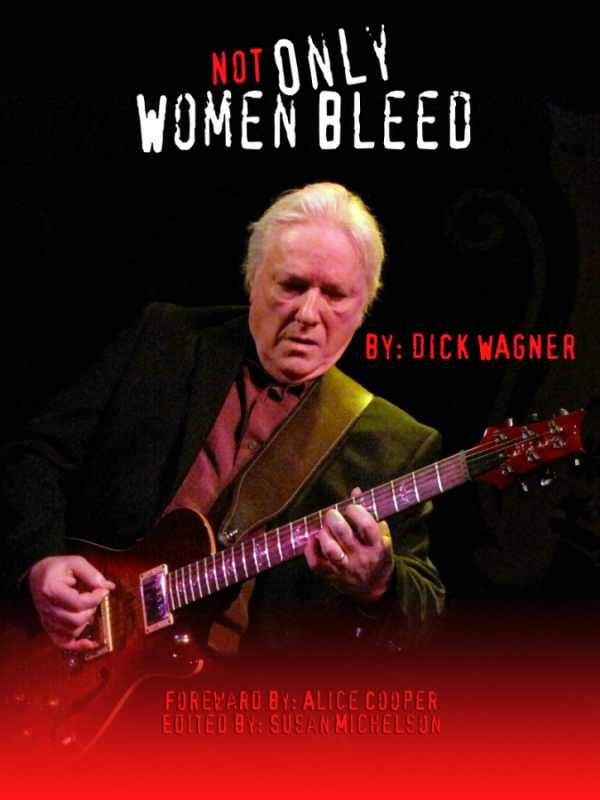
What would the title of that book be?
It’s called “Not Only Women Bleed.”
Is it an autobiography?
More or less, yeah. It’s an autobiography of my life and my career.
How long did it take you to write it?
I worked on it for like three years. It should be available in two to three weeks. You’ll be able to buy it on Amazon.com and at all of my gigs and you’ll be able to buy it on my website. And there will be a special website just for the book. It’s gonna be great.
Just to wrap it up, looking back on your long, long career can you name a couple of moments that were really extra special to you. Which bands did you especially enjoy playing with.
That’s a tough question. I did that Aerosmith album and I did a Kiss album. I enjoyed those things a lot. I enjoy playing so it doesn’t matter what. Playing sessions or whatever. You could say everybody I guess.
How can people keep up with all things Dick Wagner?
On Facebook, Dick Wagner, Maestro of Rock, on My Space at myspace.com/dickwagnermusic, and at my official website, wagnermusic.com.
Just as a closing comment, has there ever been an “Oh my God, I can’t believe this is happening to me” moment that stands out?
Too many of them, too many times that were too special, it would be hard for me to pinpoint that.
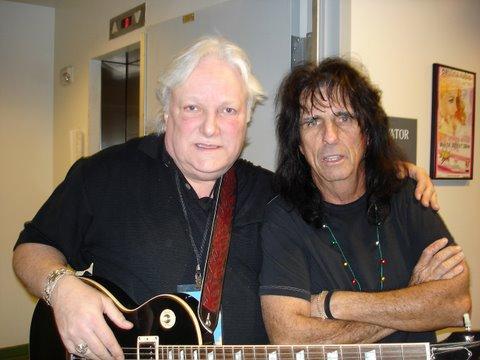
Dick, thank you so much for taking the time for this interview. I know the readers at Its Psychedelic Baby Magazine will join me in thanking you.
It was my pleasure. It was great talking to you.
Thank you so much for your time Dick. Have a wonderful evening, a wonderful tour, and hope to talk to you again someday.
Thank you. Thank you buddy.
– Kevin Rathert
Photos © Don Richard
An abbreviated discography of Dick Wagner’s earliest and best known recordings follows:
“The Complete Bossmen,” a cd release which includes the 6 singles, 12 tracks released by Dick’s first band between 1964 and 1967 and was released by Wagner Music Group in 1995 with 3 bonus tracks of early recordings by The Frost, then the 3 albums by The Frost, “Frost Music” 1969, “Rock and Roll Music” 1969 and “Through The Eyes of Love” 1970, all released on the Vanguard label and reissued in 1993, 1994, and 1995 respectively on cd by Vanguard Records Germany, and the self-titled “Ursa Major” first released in 1972 by RCA records and reissued on cd in 2000 by Collectables Records. Dick’s complete discography can be found on his official website.

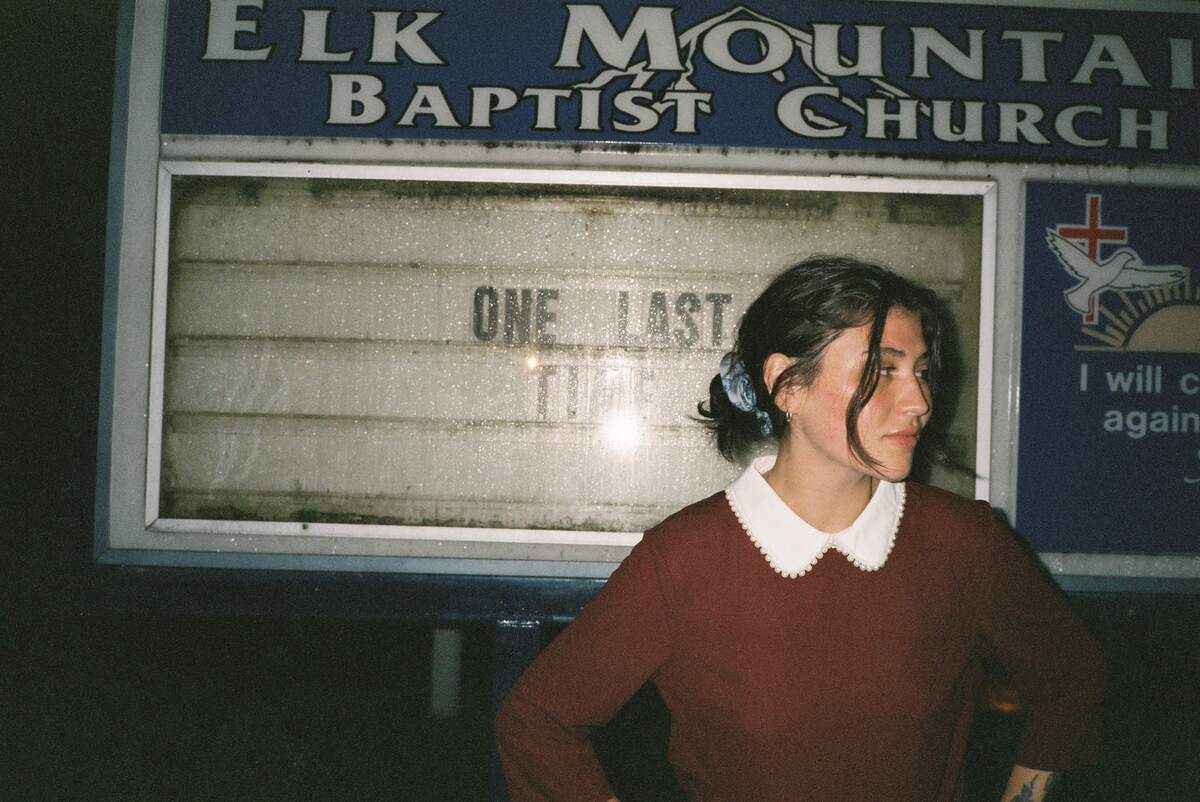
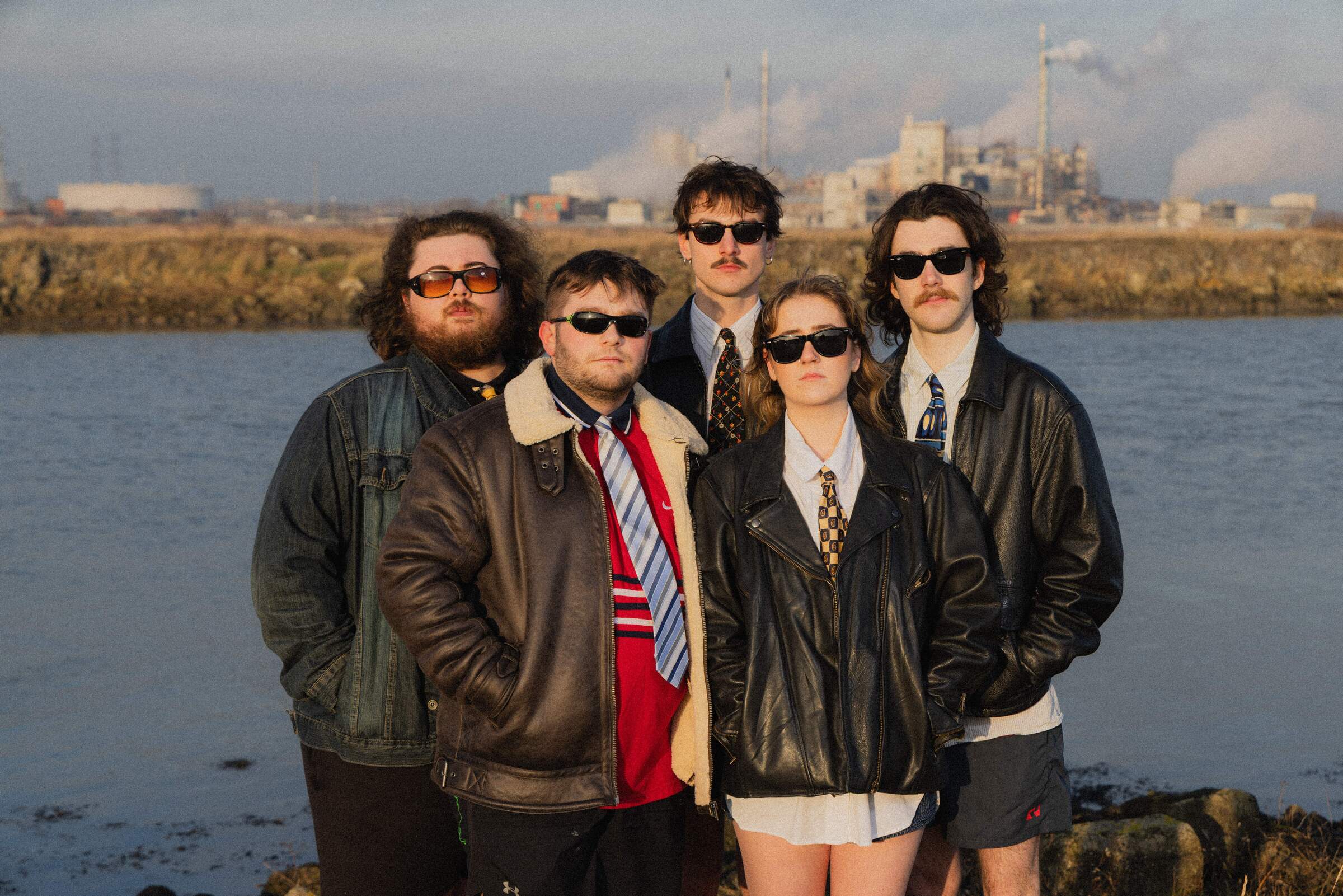
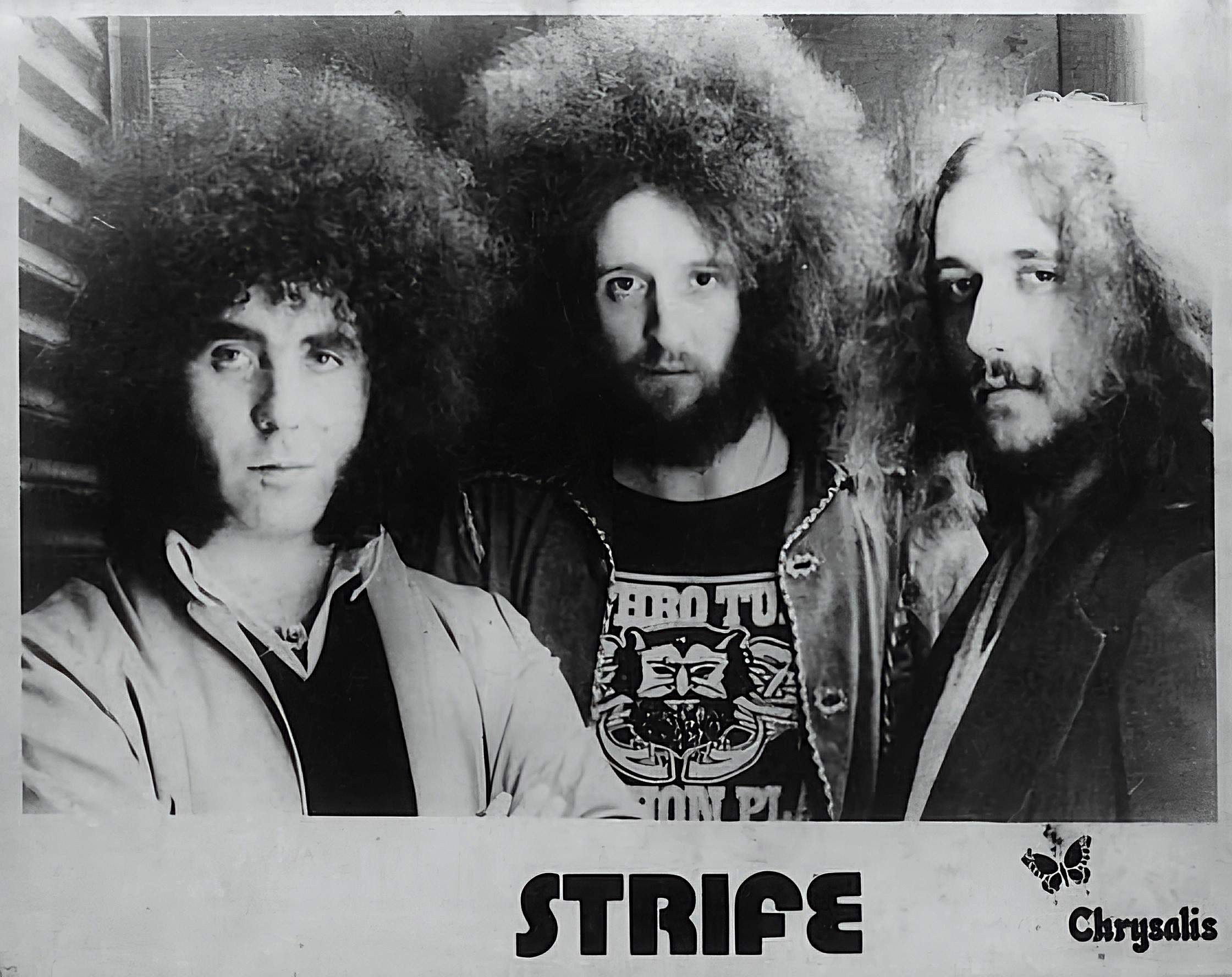
The interview looks beautiful Klemen. And Dick was such a delight to interview. Thanks for making it look as nice as it felt.
Kevin
The interview looks wonderful Klemen. Thanks for making it look as nice as it was to speak with Dick.
Kevin